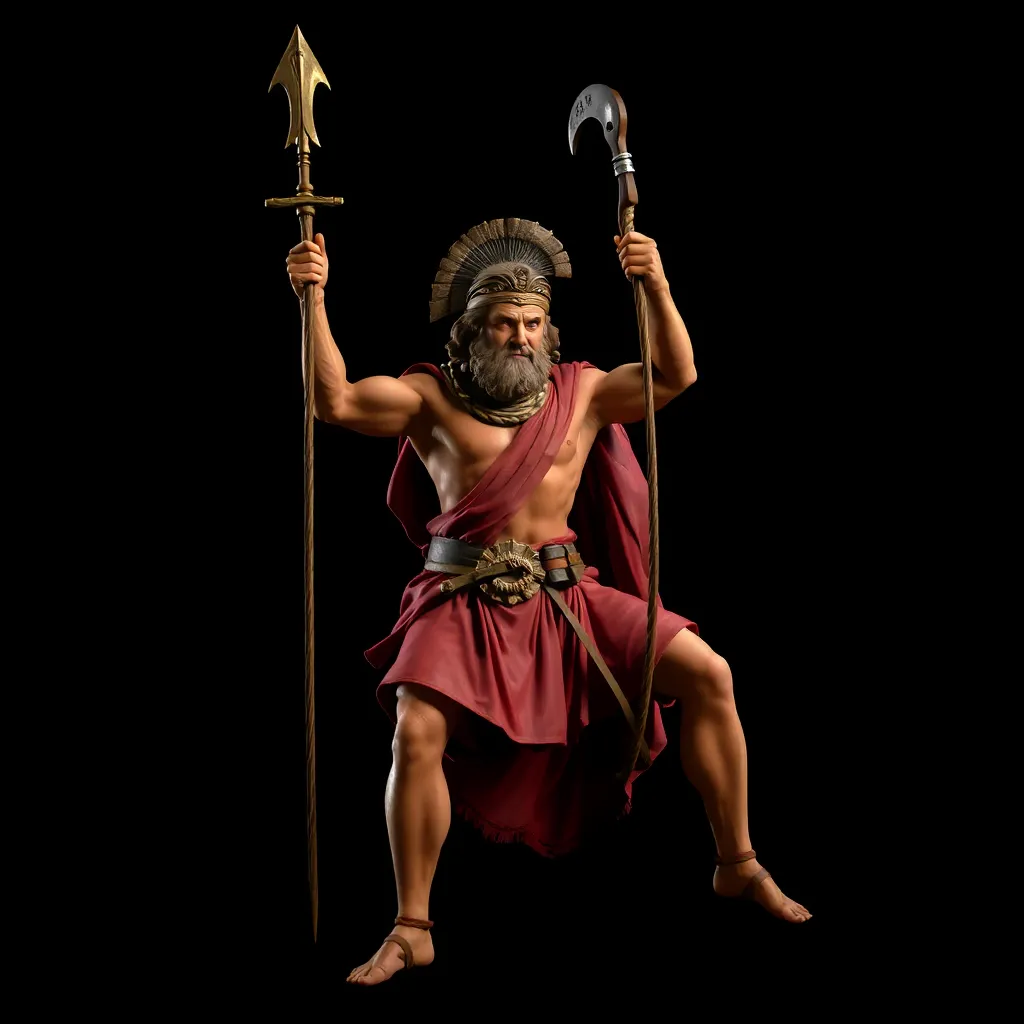The Role of the Argonauts in Shaping Greek Heroism
I. Introduction
Greek mythology is a rich tapestry of stories filled with gods, monsters, and heroes, each embodying various ideals and virtues of ancient Greek culture. Among these legendary figures, the Argonauts stand out as a group of heroes whose adventures and character traits have significantly influenced the concept of heroism in Greek mythology.
This article delves into the significance of the Argonauts, exploring their impact on the archetype of heroism within Greek myth. By examining their origins, adventures, and the values they represented, we aim to uncover how the Argonauts shaped the understanding of heroism in ancient Greece and beyond.
II. Historical Context of the Argonauts
The myth of Jason and the Argonauts is one of the foundational stories of Greek mythology. Jason, the rightful heir to the throne of Iolcus, embarks on a quest to retrieve the Golden Fleece, a symbol of authority and kingship. This quest is not merely a personal journey but also a reflection of the heroic ideals that were celebrated in ancient Greek culture.
The Golden Fleece itself is laden with symbolism, representing not just wealth and power but also the ultimate goal of heroism: the pursuit of glory and honor. The Argonauts, as a collective, embody the values of courage, loyalty, and perseverance, making them a mirror of the societal ideals of the time.
III. The Composition of the Argonauts
The Argonauts were composed of a diverse group of heroes, each contributing unique skills and attributes to their collective endeavor. Notable members included:
- Hercules – The epitome of strength and bravery.
- Orpheus – The master musician whose music could charm all beings.
- Atalanta – A fierce warrior and skilled hunter.
- Castor and Pollux – Twin brothers known for their prowess in combat and athletics.
This diversity among the Argonauts highlights a significant aspect of heroism: the importance of teamwork. Each hero brought their strengths to the table, showcasing that heroism is not solely an individual endeavor but often a collaborative effort.
Mentorship also played a key role in shaping the heroes’ journeys, with figures like Chiron providing guidance and wisdom, emphasizing the importance of learning and growth in the development of a hero.
IV. Adventures and Challenges: A Test of Heroism
The journey of the Argonauts was fraught with perilous challenges and trials that tested their resolve and camaraderie. Key quests included:
- Facing the harpies that tormented Phineas.
- Navigating the clashing rocks known as the Symplegades.
- Defeating the dragon guarding the Golden Fleece.
These adventures underscored the significance of teamwork and collaboration. The Argonauts had to rely on each other’s strengths to overcome obstacles, illustrating that true heroism often lies in working together towards a common goal.
Moreover, the contrast between individual heroism and collective heroism is a recurrent theme in their narrative. While individual feats were celebrated, it was the unity and shared efforts that ultimately led to their success.
V. The Influence of the Argonauts on Later Greek Heroes
The legacy of the Argonauts can be seen in the stories of later Greek heroes such as Hercules and Odysseus. Parallels can be drawn between their quests and those of the Argonauts, highlighting recurring themes of adventure, struggle, and the quest for identity.
The concept of the tragic hero also emerges in the context of the Argonauts. Many of their journeys were marked by personal loss and sacrifice, giving rise to narratives that explore the complexities of heroism.
Furthermore, the Argonauts’ legacy continued to resonate in subsequent myths and literature, influencing the portrayal of heroes in various forms of storytelling throughout history.
VI. Themes of Sacrifice and Redemption
Throughout their journey, themes of sacrifice and redemption emerge prominently. Many Argonauts faced choices that required them to sacrifice personal desires for the sake of the group or to achieve their goals. This willingness to sacrifice is a hallmark of true heroism in Greek culture.
Additionally, redemption arcs are woven into the narrative of the Argonauts. Characters like Jason undergo significant transformations, facing the consequences of their actions and seeking redemption through their quests. These themes resonate deeply with the Greek understanding of heroism, where the journey often involves personal growth and moral dilemmas.
VII. The Argonauts in Art and Literature
The representation of the Argonauts has persisted through the ages, as seen in ancient art and pottery depicting their adventures. These artistic expressions capture the essence of heroism and adventure, serving as visual narratives that celebrate their exploits.
In later literature, the stories of the Argonauts have been adapted and reinterpreted, influencing countless authors and playwrights. Modern adaptations continue to explore their themes, bringing the Argonauts into contemporary storytelling and popular culture.
The enduring legacy of the Argonauts is evident in various forms of media, from films to novels, where their story continues to inspire new generations.
VIII. Conclusion
In summary, the Argonauts made significant contributions to the understanding of heroism in Greek mythology. Their adventures, characterized by teamwork, sacrifice, and the quest for redemption, reflect the ideals of courage and honor that were highly valued in ancient Greek culture.
As we reflect on their place in Greek mythology and modern storytelling, it becomes clear that the evolution of heroism is deeply intertwined with the journeys of the Argonauts. Their legacy continues to resonate, reminding us that heroism is not just about individual glory but also about the bonds formed in the pursuit of a noble quest.
Ultimately, the story of the Argonauts enriches our understanding of what it means to be a hero, illustrating the timeless nature of these themes that connect us across cultures and eras.




